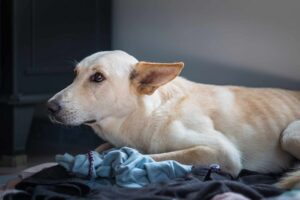We have already talked about L. Reuteri in previous articles, but let’s take stock of the cat. As for dogs, we know that some breeds, such as the Rottweiler, Border Collie, Boxer, and Weimaraner, are predisposed to chronic intestinal inflammation; unfortunately, for cats we do not have such detailed information, nor do we know which breeds are more likely to develop the condition.
The study just published by the University of Teramo research team looked at a specific breed of cat, the Persian, analyzing the effects a probiotic strain can have on it. The probiotic strain under study wasLactobacillus reuteri NBF 2 DSM 32264.
This experiment aims to investigate how this specific bacterial strain acts on the fecal and microbiological parameters of cats. We know that probiotics are often administered in cases of food-responsive enteropathy because of their ability to restore the balance of intestinal bacterial species, thereby improving fecal parameters such as fecal score (FS) and fecal moisture (FM), promoting the excretion of well-formed, compact stools, a symptom of a healthy intestinal environment. Knowing whether L. reuteri NBF 2 DSM 32264 can exert the above effects on Persian cats by examining its effects at the gut microbiota level through total lactobacilli and coliform counts can be very important for veterinarians.
Improves stool quality
Administration of L. reuteri NBF 2 DSM 32264 showed no alteration in body weight and body condition score of Persian cats.
Fecal moisture decreased at the end of the study and fecal score values improved. Fecal score represents a very important parameter biologically, closely related to the state of the animal’s intestinal ecosystem.
At the end of the study, there was a 0.7-point reduction in fecal score in the group of Persian cats that received the probiotic, accompanied by a reduction in fecal moisture values, resulting in more compact and better-formed feces.
Positive modulation of the gut microbiota
In addition, an increase in lactobacilli was observed at the end of the study period (p > 0.001); we can observe that the intake of L. reuteri NBF 2 DSM 32264 promotes better digestion and intestinal health correlated with an increase in lactobacilli and a decrease in total coliforms, highlighting that L. reuteri NBF 2 DSM 32264 is able to modulate the composition of the intestinal microflora by increasing the number of bacterial species that can maintain the integrity of the intestinal barrier and limiting the proliferation of potentially pathogenic ones.
It can therefore be a valuable aid in maintaining proper intestinal balance and well-being in cats.
Reference
Belà, B.; Di Simone, D.; Pignataro, G.; Fusaro, I.; Gramenzi, A. Effects of L. reuteri NBF 2 DSM 32264 Consumption on the Body Weight, Body Condition Score, Fecal Parameters, and Intestinal Microbiota of Healthy Persian Cats. Vet. Sci. 2024, 11, 61. https://doi.org/10.3390/vetsci11020061







